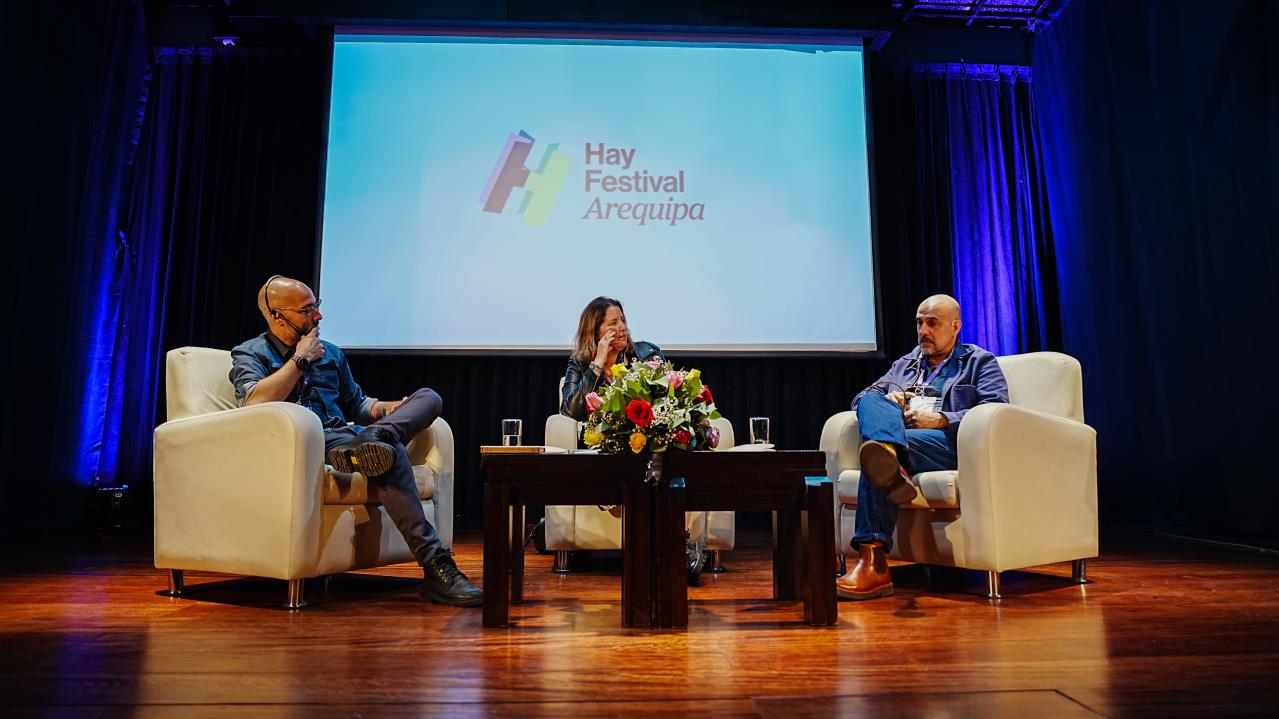
I met Agustina Bazterrica in Arequipa, where we had both been invited to speak. Under the volcano – in this case the Misti, which rises above Peru’s second city, we were both feeling the power of place. There is something ruthless, relentless, about the high Andean light, bright and clear, a perfect light for a writer of high concepts and bold speculation. Bazterrica likes to interrogate boundaries – between human and animal, between human and non human, between the real and the most feverish outposts of the imagination. Somehow, despite its razor edge, the light of Arequipa also feels deceptive, as if strange creatures could step out of the shadows, or in the dazzle you could mistake something for its opposite, a person for a bird, a corpse for a living being. It’s a appropriate setting for a writer who likes to unsetttle her audience, who plays with this capacity for change, who likes to peep at the skull beneath the skin.
The ultimate question for Bazterrica is a moral one – who or what is worthy of moral consideration. What distinguishes the flesh of an animal from that of a person? Why should we eat one and not the other? Bodies, when opened up, incite feelings of wonder and disgust. As they are butchered, the butcher may not stop to wonder about the soul, about how personhood can arise out of bone and sinew personhood. Is there a cut deep enough to get to the essence? She wants us to see how we are complicit in systems of exploitation, how there is no place outside, no neutral point. She asks us what it could mean to survive in a world devoid of empathy. People can adapt to anything, she says, but at what cost? Her writing pushes the reader’s face down towards something we all fear, something that may, after all, be too horrifying to look at.
Bazterrica’s writing exists in the shadow of disaster. Often, this disaster is environmental. What does the end of the world look like? What would it feel like to live through an apocalypse? Perhaps that is exactly where we are now, a slow disaster that we are unable to rouse ourselves to combat. She wants to shake us awake, to shout in our ears, to tell us stories that will make change, that will remind us that we have agency.